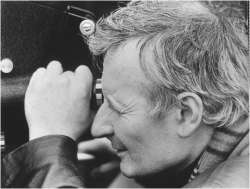
Lindsay Gordon Anderson was a British feature-film, theatre and documentary director, film critic, and leading-light of the Free Cinema movement and of the British New Wave. He is most widely remembered for his 1968 film if...., which won the Palme d'Or at Cannes Film Festival in 1969 and marked Malcolm McDowell's cinematic debut. He is also notable, though not a professional actor, for playing a minor role in the Academy Award-winning 1981 film Chariots of Fire. McDowell produced a 2007 documentary about his experiences with Anderson, Never Apologize.
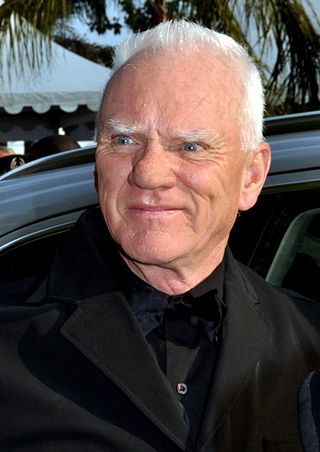
Malcolm McDowell is an English actor. He first became known for portraying Mick Travis in Lindsay Anderson's if.... (1968), a role he later reprised in O Lucky Man! (1973) and Britannia Hospital (1982). His performance in if.... prompted Stanley Kubrick to cast him as Alex in A Clockwork Orange (1971), the role for which McDowell became best known.

Alan Price is an English musician who first found prominence as the original keyboardist of the English rock band the Animals. He left the band in 1965 to form the Alan Price Set; his hit singles with and without the group include "Simon Smith and the Amazing Dancing Bear", "The House That Jack Built", "Rosetta" and "Jarrow Song". Price is also known for work in film and television, taking occasional acting roles and composing the soundtrack of Lindsay Anderson's film O Lucky Man! (1973). He was inducted into the Rock and Roll Hall of Fame in 1994 as a member of the Animals.

If.... is a 1968 British satirical drama film produced and directed by Lindsay Anderson, and starring Malcolm McDowell as Mick Travis, Richard Warwick, Christine Noonan, David Wood, and Robert Swann. A satire of English public school life, the film follows a group of pupils who stage a savage insurrection at a boys' boarding school. The film was the subject of controversy at the time of its release, receiving an X certificate for its depictions of violence.

Alex is a fictional character in Anthony Burgess' novel A Clockwork Orange and Stanley Kubrick's film adaptation of the same name, in which he is played by Malcolm McDowell. In the book, Alex's surname is not stated. In the film, however, Kubrick chose it to be DeLarge, a reference to Alex calling himself The Large in the novel. Later on in the film, two newspaper articles print his name as "Alex Burgess", a reference to Anthony Burgess. In addition to the book and film, Alex was portrayed by Vanessa Claire Smith in the ARK Theatre Company's multimedia adaptation of A Clockwork Orange, directed by Brad Mays.

Clement Graham Crowden was a Scottish actor. He was best known for his many appearances in television comedy dramas and films, often playing eccentric scientist, teacher and doctor characters.

A Clockwork Orange is a 1971 dystopian crime film adapted, produced, and directed by Stanley Kubrick, based on Anthony Burgess's 1962 novel of the same name. It employs disturbing, violent images to comment on psychiatry, juvenile delinquency, youth gangs, and other social, political, and economic subjects in a dystopian near-future Britain.
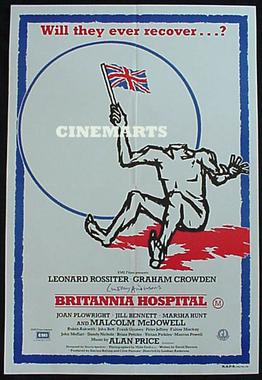
Britannia Hospital is a 1982 British black comedy film, directed by Lindsay Anderson, which targets the National Health Service and contemporary British society. It was entered into the 1982 Cannes Film Festival and Fantasporto.
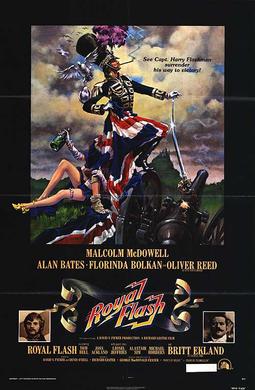
Royal Flash is a 1975 British adventure comedy film based on the second Flashman novel by George MacDonald Fraser. It stars Malcolm McDowell as Flashman. Additionally, Oliver Reed appeared in the role of Otto von Bismarck, Alan Bates as Rudi von Sternberg, and Florinda Bolkan played Lola Montez. Fraser wrote the screenplay and the film was directed by Richard Lester.
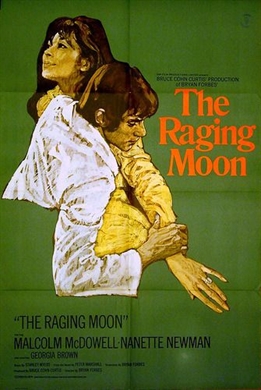
The Raging Moon is a 1971 British romantic drama film starring Malcolm McDowell and Nanette Newman and based on the book by British novelist Peter Marshall. Adapted and directed by Bryan Forbes, this "romance in wheelchairs" was considered unusual in its time owing in part to the sexual nature of the relationship between McDowell and Newman, who play disabled people. The film received two Golden Globe nominations, for Best Foreign Film, and Best Song for "Long Ago Tomorrow".
Michael Arnold "Mick" Travis is a fictional character played by Malcolm McDowell in three films directed by British film director Lindsay Anderson and written by David Sherwin. Travis features not so much as a single character with a character arc, but as an everyman character whose role changes according to the needs of the storyteller.
David Sherwin-White was a British screenwriter best known for his collaborations with director Lindsay Anderson and actor Malcolm McDowell on the films if.... (1968), O Lucky Man! (1973) and Britannia Hospital (1982).

Constance Chapman was an English character actor working in theatre and television. She also made occasional film appearances.
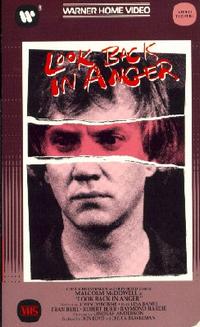
Look Back in Anger is a 1980 British film starring Malcolm McDowell, Lisa Banes and Fran Brill, and directed by Lindsay Anderson and David Hugh Jones. The film is based on John Osborne's play Look Back in Anger.

Permissive is a 1970 British exploitation drama film directed by Lindsay Shonteff and starring Maggie Stride, Gay Singleton and Gilbert Wynne. It was written by Jeremy Craig Dryden, and depicts a young girl's progress through the rock music groupie subculture of the time.
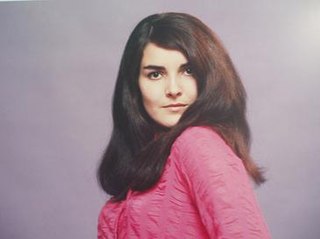
Christine Noonan was a British actress. She is best remembered for her role as the anarchist love interest of Malcolm McDowell's character in the film if.... (1968). In one scene, which gained particular notice in British cinema of the period, she impersonated a tiger and had sexual intercourse with McDowell's character Mick Travis on the floor of a cafe, which with the later violence in the film led to an X rating, leading Paramount to later cut the sexual content from the film. Noonan said of the scene in the film: "He was stark naked and I was stark naked, but we were both so busy fighting that I can't remember what he looked like in the nude". Her husband initially protested when he learned of the nature of the role, but he agreed to her acting in it once she explained the point of the film and the context.

Broderick Miller is an American screenwriter, known for his television and feature work.
Margot Bennett is an American publicist and former actress who appeared in various stage, television and film roles between the years 1957 and 1973. She is best known for her appearances in the films O Lucky Man! and Who Killed Teddy Bear, and for being the first wife of both actor Keir Dullea and, later, actor Malcolm McDowell.
Mary Katrina Anne MacLeod was an English-born Scottish actress who performed on the stage and in film and television productions of the United Kingdom. Born in the Midlands market town of Wednesbury to Scottish parents, she debuted in theatre in 1956 and had her first British cinema role in the Lindsay Anderson film if.... (1968). MacLeod continued to feature in minor roles until her career was ended early by a stroke in 2003.















